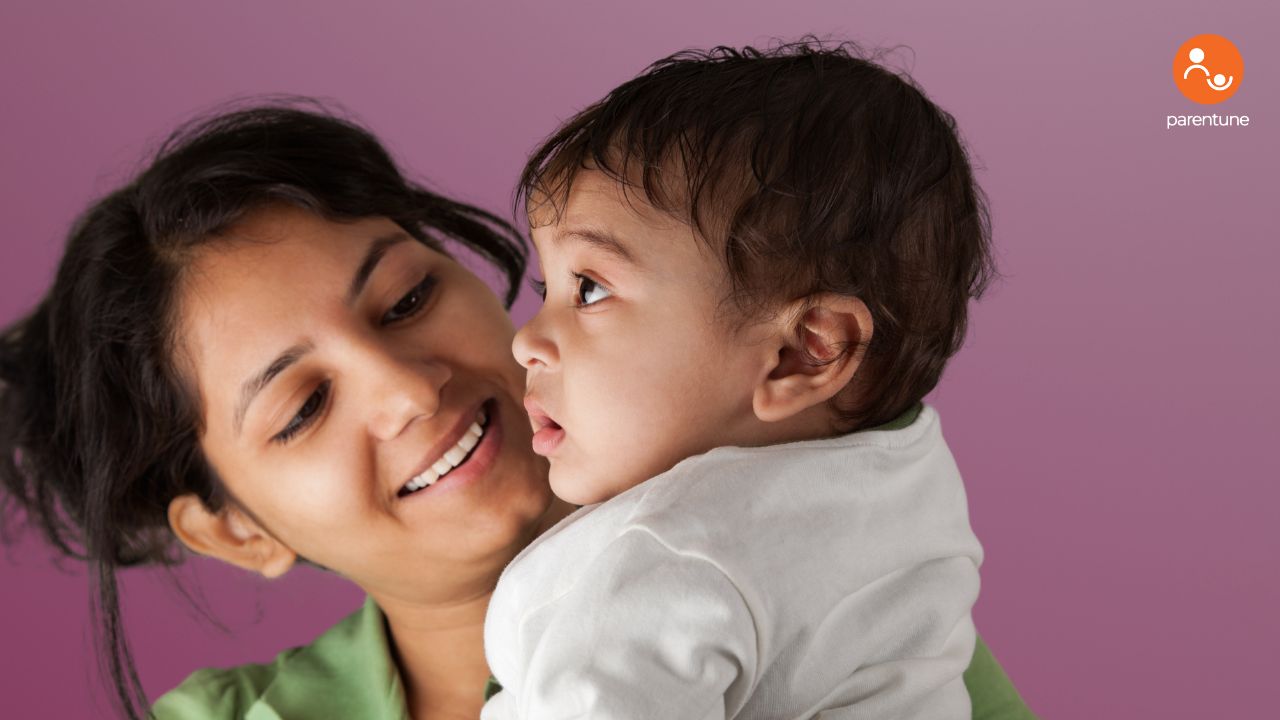medical
Newborn Hiccups: Why They Happen And How To Help

The tiniest sounds can cause the biggest worry
You're feeding your newborn. The room is quiet. And then—hic!
Another hiccup. And another.
You pause. Wonder if you did something wrong. Is baby okay? Hungry? Choking? Cold?
Welcome to the most common uncommon experience of early parenthood: newborn hiccups.
They seem too loud for such a little body. Too frequent to be harmless. But here's the thing—
Doctor Q&As from Parents like you
They’re not just normal. They’re part of how the system calibrates.
Let’s unpack why hiccups happen, what they mean, and when to pay attention. Not every twitch is a red flag. Some are just signs the engine’s starting up.
What exactly are newborn hiccups?
They’re tiny spasms with a big job
Technically, a hiccup is a sudden contraction of the diaphragm—the muscle between your baby’s chest and tummy—followed by a quick closure of the vocal cords. That’s what makes the classic hic sound.
In adults, it’s annoying.
In babies? It’s developmental.
Think of hiccups as the body’s version of practicing breath control.
Like a tuning fork for the nervous system.
Recommended readings
Why Do Newborns Hiccup So Often?
Because their systems are still syncing up
Newborns hiccup more than adults for three main reasons:
-
Immature diaphragm and reflexes
Their breathing system is still under construction. Any small trigger—like gas, temperature changes, or even feeding—can cause a hiccup reflex.
-
Swallowing air while feeding
Bottle or breast, air can sneak in. That air presses on the diaphragm, prompting hiccups.
-
Overfeeding or feeding too fast
A full tummy can irritate the diaphragm. So can gulping milk too quickly.
Think of it like a new engine revving in a garage. It sputters. It syncs. It stabilizes. Same with your baby.
Are Hiccups Uncomfortable For Babies?
Not usually. We worry more than they do.
This might be the most surprising part:
Your baby isn't bothered by hiccups.
Unless they’re interfering with feeding or sleep, hiccups aren’t painful. You’ll often see babies smiling or dozing through them. That’s a key signal. If they’re calm, you can be too.
But if hiccups come with crying, fussiness, or spit-up, that might point to something else—like gas, reflux, or even overstimulation.
Should I Try To Stop My Baby’s Hiccups?
Sometimes. But not always.
Most hiccups go away on their own. Still, if you want to gently help, there are safe, parent-tested techniques.
Here are a few:
1. Burp during and after feeding
Frequent burping releases trapped air and reduces diaphragm irritation. Don’t wait till the end—burping mid-feed can help too.
Also worth reading:
2. Try a change of position
Hold baby upright for 20–30 minutes after feeding. It helps milk settle and reduces hiccup triggers.
3. Offer a pacifier
Sucking relaxes the diaphragm. If your baby isn’t hungry, a pacifier can sometimes stop hiccups in their tracks.
4. Feed slower, in smaller amounts
If baby’s gulping too fast, switch nipples or take breaks. Controlled feeding = calmer diaphragm.
Avoid old-school remedies like sugar water, pulling on the tongue, or sudden scares. They don’t help—and can harm.
When Should I Worry About Baby Hiccups?
Red flags are rare—but worth knowing
Most of the time, hiccups are harmless. But here’s when you should check in with your pediatrician:
-
Hiccups are persistent and affect feeding or sleep regularly
-
Baby spits up forcefully after every hiccup bout
-
Hiccups come with coughing, choking, or signs of distress
-
Baby isn’t gaining weight or seems unusually fussy
Sometimes frequent hiccups can signal gastroesophageal reflux (GERD). This doesn’t mean something is wrong, but it does mean your pediatrician should weigh in.

Why Do Hiccups Happen More During Certain Times?
Patterns are hidden in plain sight
You might notice your baby hiccups more:
-
After a feeding (especially when rushed)
-
During a nap or after waking
-
In colder rooms or after a bath
These aren’t coincidences. They’re clues.
Hiccups follow rhythm patterns in digestion, temperature shifts, and sleep transitions.
Tracking when they occur can help you tweak routines for more comfort.
What About Hiccups In The Womb?
Yes, those tiny thumps inside were real
If you felt rhythmic twitches during pregnancy, you weren’t imagining things. Fetal hiccups are common in the third trimester—and they’re a good sign.
They mean the nervous system is developing and the lungs are rehearsing for life outside.
The womb is where the hiccup habit begins.
Can Newborn Hiccups Be Prevented Altogether?
Not completely—and that’s okay
Hiccups are part of the package. But you can reduce frequency by:
-
Ensuring good latch during feeding
-
Avoiding overfeeding
-
Keeping baby upright post-meal
-
Watching for cues of fullness or discomfort
The goal isn’t to eliminate every hiccup.
It’s to understand them—and respond with calm, not panic.
What Does This Teach Us About Parenting?
Some things don’t need fixing. Just understanding.
We’re conditioned to do something the moment our baby shows a sign. But not every twitch is a call to action.
Sometimes, the best parenting move is observation.
Let the system work itself out.
And here’s where community matters
At Parentune, we hear this question daily:
“My baby keeps hiccupping—should I be worried?”
And it always leads to richer conversations. About feeding rhythms. About gas pain. About just being new to it all.
This is why platforms like Parentune exist.
Not just to give advice—but to normalize the messy, magical in-betweens of parenting. To share real stories. And to remind each other that you’re not alone.
So next time your baby hiccups?
Pause. Smile.
And know you’re part of a bigger community breathing through it with you.
Key Takeaway
Hiccups are a sign your baby’s system is warming up—not breaking down.
Let them happen. Understand the rhythm.
And when in doubt, lean into the village. That’s what we’re here for.
Be the first to support
Be the first to share
Related Blogs & Vlogs
No related events found.